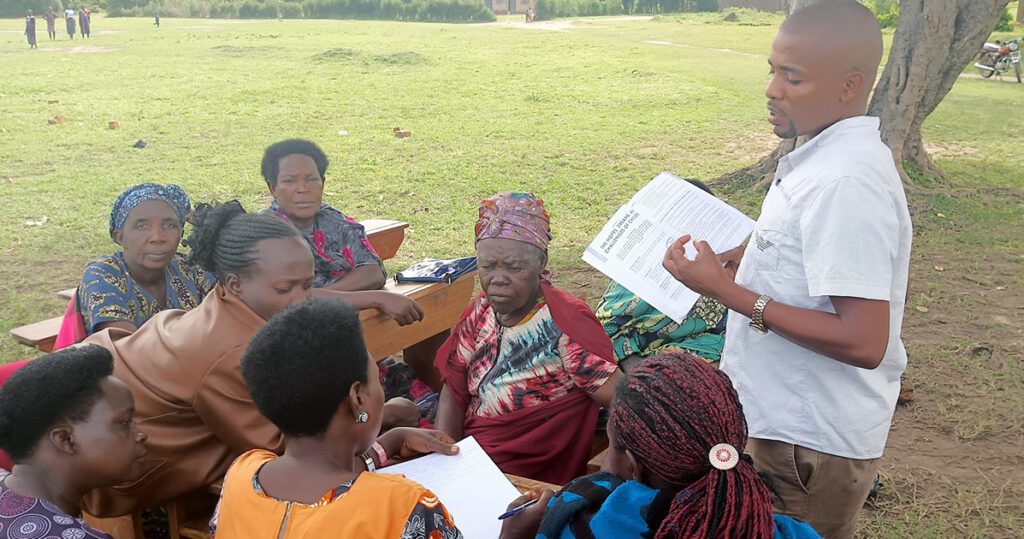Men's Engagement Program
To effectively tackle the gender norms, violence against women children and inequalities, working with only women is not sufficient. That’s why we engage men in this fight as allies, ambassadors and advocates for women’s empowerment and gender equality. When men are at the forefront of the fight against gender inequalities the entire community supports the straggle against social and economic injustices.
Meet Julius
Our men Engagement Champion
“As a male champion, I strive for gender inclusiveness and making gender parity a priority,” says local government Community Development Officer, Julius. “Being a male champion means reporting forms of abuse, acting as a source of change and inspiration for men, and being a role model for mindset change. It also means advocating for the rights of women and girls, and working to increase their visibility in society.”

Women in Action engages men on ending violence against women and girls as part of our 16 Days of Activism caravan activities.
Mr. Julius is one of 15 men in the city who participated in our Mens Engagement training sessions in 2022 on gender equality, women’s rights and ending gender-based violence.
“In Uganda, there is gender bias in education, gender disparities in agriculture, the gender pay gap, lack of representation for women and girls at policy level, and high incidences of sexual harassment,” explains Mr. Julius. “As a male champion I use my authority in the community to create a more inclusive culture and promote reduction of violence within my society.”
During training sessions, Julius and other male champions learned about the role of women’s rights in reducing gender-based violence; the importance of family planning services for women and how to encourage men to explore those services with their wives; positive parenting techniques that promote gender equality; and safe sexual behaviours that promote women’s bodily autonomy and agency. The champions were equipped with the skills to act as role models and change agents for other men in their communities, and there are reduced incidences of conflicts in those districts targeted by the trainings.